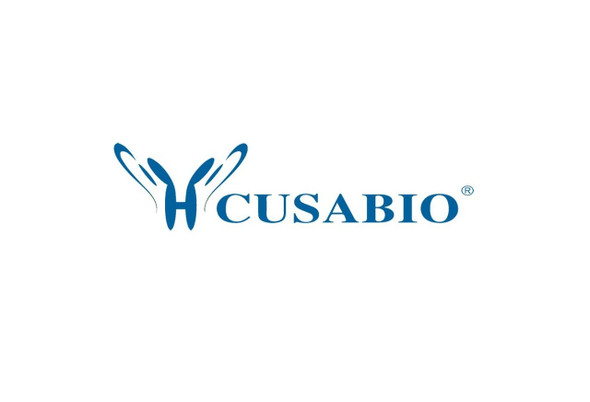Cusabio Virus & Bacteria Recombinants
Recombinant Calloselasma rhodostoma Snaclec rhodocytin subunit beta | CSB-EP872766CBG
- SKU:
- CSB-EP872766CBG
- Availability:
- 13 - 23 Working Days
Description
Recombinant Calloselasma rhodostoma Snaclec rhodocytin subunit beta | CSB-EP872766CBG | Cusabio
Alternative Name(s): Aggretin beta chain Rhodoaggretin subunit beta
Gene Names: N/A
Research Areas: Others
Organism: Calloselasma rhodostoma (Malayan pit viper) (Agkistrodon rhodostoma)
AA Sequence: DCPSGWSSYEGHCYKPFNEPKNWADAERFCKLQPKHSHLVSFQSAEEADFVVKLTRPRLKANLVWMGLSNIWHGCNWQWSDGARLNYKDWQEQSECLAFRGVHTEWLNMDCSSTCSFVCKFKA
Source: E.coli
Tag Info: N-terminal 6xHis-B2M-tagged
Expression Region: 24-146aa
Sequence Info: Full Length of Mature Protein
MW: 28.4 kDa
Purity: Greater than 90% as determined by SDS-PAGE.
Relevance: Elicits platelet aggregation by the binding to the C-type lectin domain family 1 member B (CLEC1B/CLEC2). Binding leads to tyrosine phosphorylation in the cytoplasmic tail of CLEC1B, which promotes the binding of spleen tyrosine kinase (Syk), subsequent activation of PLCgamma2, and platelet activation and aggregation. Binding to GPIbalpha (GP1BA) and alpha2/beta-1 (ITGA2/ITGB1) may also induce aggregation, but this is controversial.
Reference: "Aggretin, a heterodimeric C-type lectin from Calloselasma rhodostoma (malayan pit viper), stimulates platelets by binding to alpha 2beta 1 integrin and glycoprotein Ib, activating Syk and phospholipase Cgamma 2, but does not involve the glycoprotein VI/Fc receptor gamma chain collagen receptor." Navdaev A., Clemetson J.M., Polgar J., Kehrel B.E., Glauner M., Magnenat E., Wells T.N.C., Clemetson K.J. J. Biol. Chem. 276:20882-20889(2001)
Storage: The shelf life is related to many factors, storage state, buffer ingredients, storage temperature and the stability of the protein itself. Generally, the shelf life of liquid form is 6 months at -20?/-80?. The shelf life of lyophilized form is 12 months at -20?/-80?.
Notes: Repeated freezing and thawing is not recommended. Store working aliquots at 4? for up to one week.
Function: Elicits platelet aggregation by the binding to the C-type lectin domain family 1 member B (CLEC1B/CLEC2). Binding leads to tyrosine phosphorylation in the cytoplasmic tail of CLEC1B, which promotes the binding of spleen tyrosine kinase (Syk), subsequent activation of PLCgamma2, and platelet activation and aggregation. Binding to GPIbalpha (GP1BA) and alpha2/beta-1 (ITGA2/ITGB1) may also induce aggregation, but this is controversial.
Involvement in disease:
Subcellular Location: Secreted
Protein Families: Snaclec family
Tissue Specificity: Expressed by the venom gland.
Paythway:
Form: Liquid or Lyophilized powder
Buffer: If the delivery form is liquid, the default storage buffer is Tris/PBS-based buffer, 5%-50% glycerol. If the delivery form is lyophilized powder, the buffer before lyophilization is Tris/PBS-based buffer, 6% Trehalose, pH 8.0.
Reconstitution: We recommend that this vial be briefly centrifuged prior to opening to bring the contents to the bottom. Please reconstitute protein in deionized sterile water to a concentration of 0.1-1.0 mg/mL.We recommend to add 5-50% of glycerol (final concentration) and aliquot for long-term storage at -20?/-80?. Our default final concentration of glycerol is 50%. Customers could use it as reference.
Uniprot ID: Q9I840
HGNC Database Link: N/A
UniGene Database Link: N/A
KEGG Database Link: N/A
STRING Database Link: N/A
OMIM Database Link: N/A









